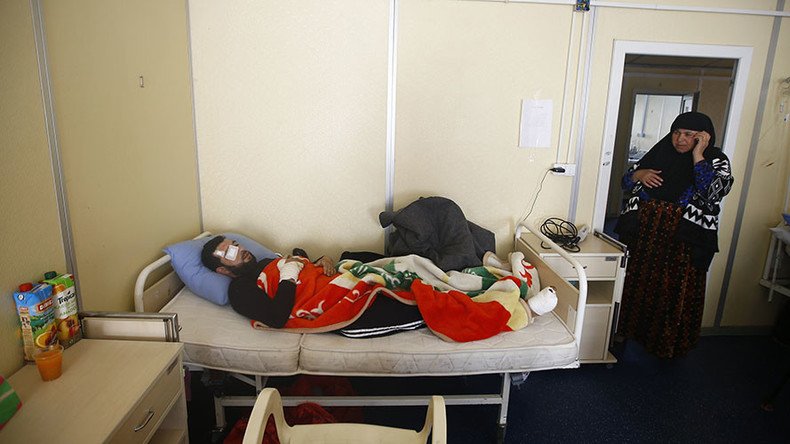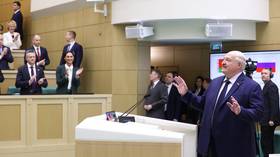Netanyahu offers to treat wounded Aleppo ‘noncombatants’ in Israel

Tel Aviv is seeking to increase humanitarian assistance to Syria, expressing a desire to help injured children, women and “noncombatant” men in Aleppo by transporting them to Israel for medical treatment.
The country’s Foreign Ministry has been tasked by Prime Minister Benjamin Netanyahu with exploring the possibility, so as to devise a plan to help the wounded Syrians.
“We see the tragedy of terrible suffering of civilians and I’ve asked the Foreign Ministry to seek ways to expand our medical assistance to the civilian causalities of the Syrian tragedy, specifically in Aleppo where we’re prepared to take in wounded women and children, and also men if they’re not combatants,” Netanyahu announced Tuesday during a reception for foreign correspondents.
Over 2,000 Syrians have received medical treatment in Israeli hospitals since 2013, according to the Israeli army. Israel now seeks to extend the courtesy.
“We’d like to do that: Bring them to Israel, take care of them on our hospitals as we’ve done with thousands of Syrian civilians. We’re looking into ways of doing this; it’s being explored as we speak.”
While details of the new Foreign Ministry task have not been shared, in the past the Jewish state has received both wounded Syrian civilians and rebel fighters. The majority of them get treated at the Ziv Medical Center in Sefad, Haaretz reported.
“The Syrian Civil War began in 2011 and we at Ziv Medical Center have given medical assistance to the Syrians wounded since February of 2013. We are proud to have helped over 2,500 Syrians with assistance,” Ziv Hospital Director Dr. Salman Zarka told an audience in the United States earlier this week, according to Haaretz.
The wounded, who often include young orphaned children, are offered help by the Israeli medical staff after reaching the Syrian-Israeli border. The majority of patients typically suffer from serious war wounds that often requires an extended period of treatment. After their treatment, patients typically return to Syria.
Israel is now working on ways to transfer civilians from Aleppo, one official familiar with the matter told Jerusalem Post. It is a much bigger logistical challenge, the source noted, as most of the Syrians treated in Israel until now have come from regions close to the Golan border.
Netanyahu meanwhile questioned whether Syria will ever look the same. The war will soon enter its fifth year.
“Will it come together and be a unified Syria? I doubt it. I think you have enclaves there and they are not about to disappear,” Netanyahu noted adding that Israel will not allow the Syrian war to “spill over into our territory.”
“You know our position and my red lines. We keep them – stringently,” Netanyahu warned. “I don’t know if we can resolve [the crisis in] Syria, but we can help mitigate some of the suffering. That is the best that Israel can do.”














